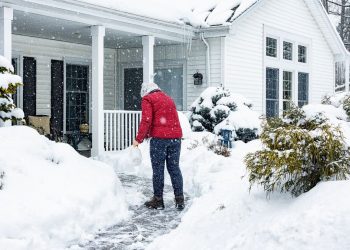Homeowners insurance will pay for repairs to your house if it gets damaged. It will also pay to replace belongings that get damaged or destroyed. However, homeowners insurance policies don’t cover all types of events. Many homeowners assume that their insurance policy covers things that it doesn’t and are shocked when they file a claim and it gets denied. This is why it’s critically important to understand what you’re getting when you purchase homeowners insurance.
What Is a Named-Perils Policy?
Some homeowners insurance policies only cover specific perils, or events that lead to a loss. For example, a policy may only cover fire, lightning, theft and a handful of other types of events. If you have that type of policy and your home or personal belongings get damaged or destroyed by something else, your losses won’t be covered.
What Is an All-Risk Homeowners Insurance Policy?
Other policies provide broader coverage. An all-risk policy covers losses associated with all types of perils, except ones that are specifically excluded. For instance, flooding is generally not covered. Even if you have an all-risk homeowners policy, if you want to be covered in the event of a flood, you’ll need to purchase a separate flood insurance policy.
Which Type of Policy Is Better for You?
Since an all-risk homeowners insurance policy covers more than a named-perils policy, you will have to pay higher premiums if you take out an all-risk policy. A named-perils policy may be more affordable than an all-risk policy, but your coverage will be more limited.
If you have a named-perils policy and you suffer a loss caused by a peril that isn’t covered, you will have to pay for repairs and replacement yourself. In some cases, those costs may easily be tens of thousands of dollars. Think about what you would do in that sort of situation and ask yourself if you’re comfortable with that level of risk.
How Can You Get Affordable Homeowners Insurance Coverage?
When you contact your insurance agent or request a quote from a particular company, discuss the covered perils and exclusions in detail. Shop around and compare rates from several carriers. Insurance companies consider a number of factors when setting their premiums, and rates for the same coverage can vary widely from one carrier to another.
If you get a quote for an all-risk policy and the premiums are too high to fit your budget, that doesn’t necessarily mean that you have to get a named-perils policy with more limited coverage in order to get insurance that you can afford. Another company may offer you an all-risk policy that fits your budget.
Even if you purchase an all-risk policy, remember that it won’t cover everything. If you live in an area where there is a risk of flooding or earthquakes, consider getting a separate policy or an endorsement to cover that specific peril.











